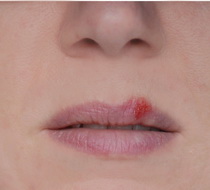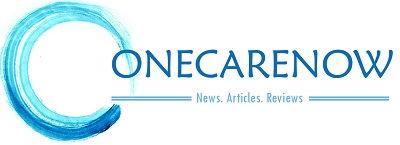![]()
 If you don’t know what herpes is, it’s a sexually transmitted disease (STD) caused by herpes simplex virus. It’s a fairly common STD, with the Center for Disease estimating that around 250,000 people getting infected every year.
If you don’t know what herpes is, it’s a sexually transmitted disease (STD) caused by herpes simplex virus. It’s a fairly common STD, with the Center for Disease estimating that around 250,000 people getting infected every year.
If you’ve had sexual contact with someone who has herpes, do NOT depend on self-diagnosis. You will want to be certain, and to be able to do that, you have to go to the doctor. In many occasions, herpes is asymptomatic, meaning the signs and symptoms are either not there or are too mild to become recognized.
But herpes symptoms, when they appear, do so with a bang. You will experience small and painful sore spots that heal during a period of several days. These spots could be either in your genital area or perhaps your buttocks. At other times the symptoms could appear as red-colored, caking, or raw skin within the sex organs. They may or may not be itchy. Other symptoms include discomfort during peeing, the flu-like signs and symptoms, for example fever, body aches (mainly in the neck and back), and inflamed sex glands.
When you’ve been diagnosed with herpes, speak to your physician about medical-strength herpes treatments. Your physician should have the ability to provide you with specific information on which drugs and safeguards to consider so you can manage your signs and symptoms effectively. Because there’s no cure yet for herpes, controlling signs and symptoms should be your top priority.
Your physician may recommend antiviral drugs. Antiviral drugs lessen the amount of herpes breakouts by reduction of what’s known as “viral shedding,” or the process through which herpes makes new copies of itself around the surface of the skin.
Know your options when it comes to taking antiviral drugs. The medicine should be administered by your physician at recommended ties. When the herpes simplex virus is first identified, medicine is usually recommended. Then, medicine is recommended on an intermittent or consistent basis, but this all depends on the harshness of the breakouts and also the patient’s individual needs.
During initial treatment after you’re first diagnosed with herpes, your physician will suggest a brief trial (about a week) of antiviral drugs. If ten days of antiviral medication doesn’t help manage the outbreak, your physician may continue your treatment for two more days.
Should you experience breakouts occasionally, or at irregular occasions, after your initial treatment, your physician may prescribe an antiviral drug to work with when breakouts occur. Having several days’ supply of antiviral medication available will help you to manage the symptoms the moment the outbreak happens, reducing its severity and duration.
For those who have regular breakouts that total more than six every year, you need regular treatment. Speak to your physician about taking antiviral medication every single day. This really is known as suppressive herpes treatments. People with regular breakouts who start to take medication every single day frequently find their breakouts reduced up to 80%.
There are other things that you can do aside from taking medicines. Soak the affected region in warm water, however when not soaking, keep the area dry. Doctors sometimes recommend soaking in warm water to alleviate itchiness or discomfort connected with the herpes breakouts. You might find that aluminum acetate or magnesium sulfate (also called Epsom salts) help relieve the affected region, although these aren’t physician-suggested remedies.
If you have sores, clean them lightly with mild soap and warm water. Keeping sore spots clean helps speed up healing. If towel-drying the washed area is painful, use a hair dryer.
Put on loose, breathable under garments and clothing. Wearing cotton under garments is essential. Avoid using non-cotton synthetic underwear because they can aggravate herpes signs and symptoms, because these materials will are not breathable. .
In case your breakouts are extremely painful, ask your doctor for a topical medicine to apply to the affected area. Although topical remedies are usually not as effective as systemic remedies, they can temporarily alleviate discomfort.
Try creams that are made with propolis. In nature, propolis is resinous material collected in the buds of poplar trees, even though it is frequently gathered from beehives. A 3% propolis cream when applied to herpes lesions, might help heal them.
In a single study, propolis cream was utilized four times each day, for ten days, among 30 participants. Later on, 24 of the participants who used the propolis cream had their lesions cured, while only 14 of 30 participants who used a placebo reported their lesions cured.
Get some baking soda to dry herpes sores. Sodium bicarbonate is yet another proven substance for everything from smelly fridges to smelly armpits, in addition to a tooth paste and acne remedy. Sodium bicarbonate might help dry up moist or oozing lesions, therefore helping them disappear faster. Like a dry agent, sodium bicarbonate is neat and absorbent, though still not a physician-suggested herpes treatments option.


 OneCareNow is a general weblog that was created by several writers with a specific goal in mind: To offer one place that covers important topics which people really care about.
OneCareNow is a general weblog that was created by several writers with a specific goal in mind: To offer one place that covers important topics which people really care about.![Back Pain Breakthrough by Palmer & Dr. Young [2024 Review]](https://www.onecarenow.org/wp-content/uploads/2021/02/Back-Pain-Breakthrough-Young-Amy-50x50.png)
![Vincent’s Midas Manifestation System Review [Updated 2024]](https://www.onecarenow.org/wp-content/uploads/2021/02/Midas-Manifestation-50x50.png)
![The NEW Happiness Code by David [Updated 2024 Review]](https://www.onecarenow.org/wp-content/uploads/2021/01/The-NEW-Happiness-Code-50x50.png)
![Michael Christianson’s Manifestation Sigil Review [2024]](https://www.onecarenow.org/wp-content/uploads/2021/01/Manifestation-Sigil-50x50.png)
